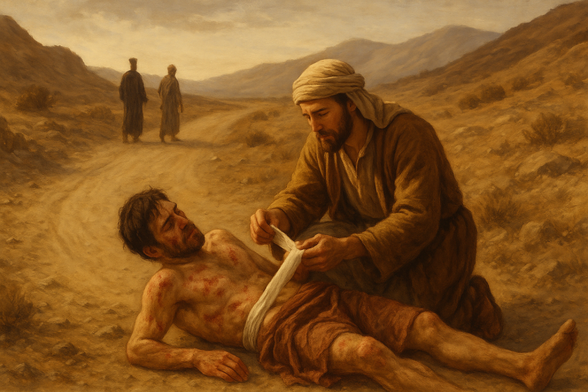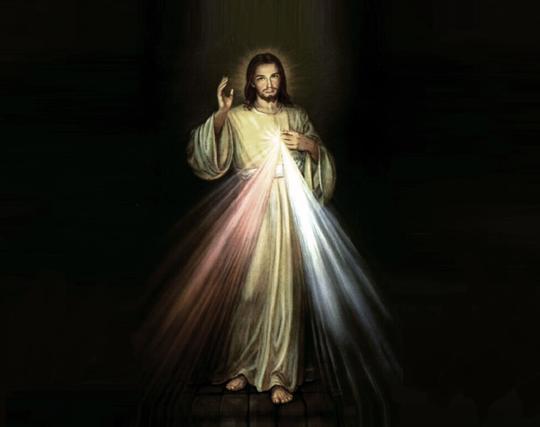The Forgotten Man: A Parable for a New Generation
1,703 words, 9 minutes read time.
Walking with the Good Samaritan: Servant Leadership for a New EraAffiliate Link
I had been walking down that same road for years. The same dusty, sun-scorched path that split the barren landscape between my home and the bustling marketplace. In a way, it had become my lifeline—familiar and predictable. I had learned to hate the road, but I also depended on it. It was a place of isolation, a place where my thoughts could be my only company, where I could let my mind wander and get lost in the monotony of daily life.
There were many things I had forgotten over the years: the face of my father, the laughter of my childhood, the warmth of a friendship that had been long extinguished. What I hadn’t forgotten, though, was the road. And one fateful day, I was left to walk it alone.
It started with a quiet whisper in my ear, an enticing invitation to venture out a little further, to see something beyond the ordinary. You see, I had always been a man driven by ambition, by the need for recognition, and by the belief that I deserved more than what my small world had to offer. I had a good life, by many standards—safety, security, and a reputation that made people respect me—but it never felt like enough. There was a hunger in me that was always unsatisfied, a thirst for something more, something greater.
It was this ambition, this longing for more, that led me down the path that would eventually change my life forever.
One day, a wealthy merchant had come to town, and I had heard rumors of the treasures he carried. My instincts told me that if I could make an impression on this man, I could secure my future, maybe even gain the riches I had always dreamed of. But it wasn’t just about the money—it was about the power, the prestige. It was the chance to prove I was better, that I deserved something more than what I had been given.
So, I began planning. I knew that the road to the merchant’s camp was treacherous, but my pride told me that I could navigate it alone. I was no stranger to hardship. In my mind, I was untouchable, invincible even. Nothing could stand in my way. It was my choices, my will, that would determine my fate. I had walked the road countless times before and had survived every challenge. But this time would be different.
I set out early in the morning, my mind filled with the promise of something greater, something beyond my wildest imagination. As the hours passed, I grew increasingly aware of the isolation around me. The silence of the barren hills, the dust in the air, the weight of the sun pressing down upon my skin. But still, I pressed on.
And then, it happened.
A group of bandits emerged from the shadows of the rocks. They surrounded me with the swiftness of predators, their faces masked, their weapons drawn. I tried to fight back, but I was outnumbered. It didn’t take long before I found myself lying on the ground, my body bruised and bloodied. My possessions were taken, my dignity stripped away, and I was left there, half-conscious, alone on the side of the road.
In that moment, I thought to myself, “How could this have happened? How could I have been so careless?” But deep down, I knew the answer. It was my pride, my arrogance, that had brought me here. It was my own choices, my own desire for more, that had led me to this place of ruin. And as the hours passed, the pain only grew worse, the realization of my foolishness sinking deeper into my bones.
I was not the only one who passed by that day. There were others—people I had once called friends, people I had respected. The first was a priest, a man of God. He saw me lying there, wounded and broken, but he kept walking. I remember the look on his face—indifference mixed with a touch of superiority. In his eyes, I was nothing more than a nuisance, a distraction from his holy duties. He passed me by without a second thought.
Next came a Levite, a man of the law, someone who had always been quick to uphold tradition and righteousness. He saw me too, but his response was no different from the priest’s. He crossed to the other side of the road, avoiding me with the same cold detachment. It wasn’t that he didn’t see me; it was that he didn’t care.
But then, something unexpected happened.
A man appeared from the distance. He was a Samaritan—a man from a group that my people had long despised. The Jews and the Samaritans had been at odds for generations, locked in a bitter rivalry that went back centuries. Yet, as this Samaritan approached, something in his eyes told me that he was different.
He didn’t hesitate. He knelt down beside me, his hands gentle as they touched my wounds. I tried to speak, to thank him, but my voice was weak. He didn’t need my gratitude. Instead, he lifted me up, carefully and without judgment, as if I was a brother he had never met before.
The Samaritan didn’t just stop to offer a word of sympathy; he took action. He used his own supplies to bandage my wounds and then helped me onto his donkey. The journey to the nearest inn was slow and painful, but he stayed by my side, never once complaining, never once turning away.
At the inn, he paid for my care, ensuring that I would be well-treated until I had recovered. And before he left, he told the innkeeper that if the cost of my stay exceeded what he had already given, he would cover it. “Take care of him,” he said. “Whatever it costs, I will pay.”
I had been left for dead by those who were supposed to help me—by those who considered themselves righteous, by those who believed they were above the likes of me. But the one person I least expected to show mercy was the one who did.
Then Jesus.
It was in that moment that everything changed for me. The story of the Good Samaritan became more than just words. It was my story. I had once been like the priest, like the Levite, judging others from a distance, thinking that my position in society gave me the right to look down on those who were less fortunate. But in my hour of need, I was shown mercy by the one I had been taught to despise. It was as if God Himself had reached down and pulled me out of the pit I had dug for myself.
I realized that my choices had led me to this place. It wasn’t fate or bad luck. It was my pride, my refusal to see the humanity in others, my selfish desire for more. And now, I had been given a second chance. The Samaritan didn’t owe me anything, yet he gave me everything.
The moral of the story isn’t just about helping those in need. It’s about understanding that we all have a choice—to be like the priest, to be like the Levite, or to be like the Samaritan. We can choose to turn away, to ignore the suffering of others, or we can choose to step into the mess, to offer mercy where it is least expected.
In that moment, I understood what it truly meant to love my neighbor. It wasn’t about who was worthy of my help. It wasn’t about whether or not they fit into my social circle, my ideology, or my expectations. It was about showing kindness, compassion, and mercy to those who need it the most—without conditions, without judgment.
And so, I was left with a choice. I could continue down the road of self-righteousness, clinging to my pride and my ambition. Or I could choose to live differently, to be a neighbor to those who were suffering, to show the same mercy that had been shown to me.
I chose the latter. And though I may never fully repay the Samaritan for his kindness, I have vowed to be a good neighbor to others, just as he was to me. I can only hope that my actions, however small, might one day make a difference in someone else’s life—just as the Samaritan’s actions changed mine.
Now, I see the road differently. It’s no longer a place of isolation and pride, but a reminder of the choices I make and the impact they have on the world around me. And every time I walk it, I remember that no one is beyond mercy, and that love has the power to transform even the most broken of lives.
And so, my story continues—not as one of ambition and pride, but as one of grace, humility, and the redemptive power of compassion. I hope it’s a story worth sharing, not just for me, but for all of us.
D. Bryan King
Sources
- What is the meaning of the Parable of the Good Samaritan?
- Are We Missing the Primary Meaning of the Good Samaritan Story?
- The Good Samaritan Sermon – Luke 10:27-35
- Commentary on Luke 10:25-42 – Good Samaritan – Working Preacher
- Rereading the Parable of the Good Samaritan
- Jesus, Our Good Samaritan: My Sermon on Luke 10:25-37
- Enduring Word Bible Commentary Luke Chapter 10
- Modern Good Samaritan parable. Luke 10:25–37 – The Policy
- The Parable of the Good Samaritan | Preaching Today
- The Parable of the Good Samaritan: On Love | Redeemer Church
- Understanding the Good Samaritan Parable – Biblical Archaeology
- The Parable of the Good Samaritan, a Sermon from R.C. Sproul
- The Parables Of Jesus – The Good Samaritan (Lk 10:25-37)
- 4 Lessons from the Parable of the Good Samaritan
- A modern parable of the good Samaritan?
Disclaimer:
The views and opinions expressed in this post are solely those of the author. The information provided is based on personal research, experience, and understanding of the subject matter at the time of writing. Readers should consult relevant experts or authorities for specific guidance related to their unique situations.
Related Posts
#biblicalCompassion #biblicalKindness #biblicalLessons #biblicalParables #biblicalRedemption #biblicalStory #biblicalTeachings #ChristianFaith #ChristianForgiveness #ChristianMorality #compassionInAction #compassionInChristianity #compassionOverJudgment #divineMercy #faithAndRedemption #forgiveness #GoodSamaritan #graceAndMercy #helpingOthers #helpingOthersInNeed #helpingThePoor #humilityInFaith #JesusParables #JesusTeachings #JesusMessage #kindness #lessonsFromJesus #lessonsOfMercy #loveAndForgiveness #loveThyNeighbor #loveYourNeighbor #mercy #mercyAndCompassion #mercyInChristianity #moralParables #moralityInTheBible #neighborlyLove #overcomingPride #parableMeaning #parableOfTheGoodSamaritan #powerOfKindness #prideAndDownfall #redemptionStory #religiousCompassion #SamaritanCompassion #SamaritanHelp #SamaritanKindness #SamaritanStory #secondChances #selfReflection #selfRighteousness #spiritualAwakening #spiritualLessons #walkingWithGod


